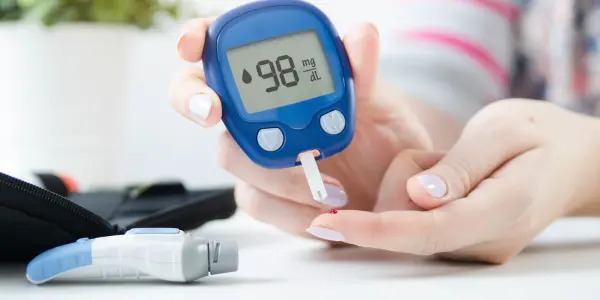Understanding Different Types of Diabetes and Their Treatment Approaches
Diabetes Treatment: “Effective Diabetes Treatment involves understanding the specific type of diabetes you have, as each requires different management strategies.”
Type 1 Diabetes Treatment
Type 1 diabetes Type 1 diabetes develops when the immune system erroneously targets and eliminates the insulin-producing cells in the pancreas. It represents about 5-10% of all diabetes cases and is most commonly diagnosed in children and young adults.

Insulin remains the essential treatment for managing Type 1 diabetes therapy, since the body stops making insulin naturally and the body cannot produce this essential hormone. Without insulin, glucose cannot move into the cells to be used for energy, causing it to accumulate in the bloodstream and raise blood sugar levels.
Diabetes Type 1 Treatment (secondary keyword): “Diabetes Type 1 Treatment primarily revolves around insulin replacement through various delivery methods.”
Modern insulin delivery methods include:
- Insulin Injections: Using syringes or insulin pens to administer insulin subcutaneously
- Insulin Pumps: Small electronic devices that deliver insulin continuously throughout the day
- Artificial Pancreas Systems: Advanced devices that monitor blood glucose and automatically adjust insulin delivery
For patients in Delhi seeking specialized care for Type 1 diabetes, consulting with a top diabetes doctor in Delhi who specializes in advanced insulin management is essential. These specialists can help determine the optimal insulin regimen based on individual factors such as age, lifestyle, and glucose patterns.
Type 2 Diabetes Treatment
Type 2 Diabetes (primary keyword): “Type 2 Diabetes is characterized by insulin resistance and requires a multi-faceted treatment approach that often begins with lifestyle modifications.”
Type 2 diabetes, the most common form, happens when cells stop responding properly to insulin, don’t respond correctly to insulin or when the pancreas doesn’t make enough insulin. Unlike Type 1, the treatment approach for Type 2 diabetes typically follows a stepwise progression:
- Lifestyle Adjustments: The first step involves changes in diet, boosting physical activity, and managing weight.
- Oral Medications: If lifestyle changes aren’t sufficient, medications may be prescribed to:
- Increase insulin sensitivity (e.g., Metformin)
- Stimulate insulin production (e.g., Sulfonylureas)
- Slow carbohydrate absorption (e.g., Alpha-glucosidase inhibitors)
- Increase glucose excretion (e.g., SGLT2 inhibitors)
- Injectable Medications: For some patients, GLP-1 receptor agonists may be prescribed to enhance insulin secretion and reduce appetite
- Insulin Therapy: When other treatments aren’t adequate, insulin may be necessary
The Best Diabetes specialist in East Delhi can develop a personalized Type 2 diabetes treatment plan that evolves with your condition.
Gestational Diabetes Treatment
Gestational diabetes emerges during pregnancy and typically goes away after childbirth. Still, it must be managed carefully to protect the well-being of both mother and baby.
Gestational Diabetes Treatment (secondary keyword): “Gestational Diabetes Treatment Aims to regulate blood glucose levels within a stable safe range through diet, exercise, and sometimes insulin.”
The treatment approach typically includes:
- Blood Glucose Monitoring: Checking levels multiple times daily
- Medical Nutrition Therapy: Working with a dietitian to create a pregnancy-appropriate meal plan
- Physical Activity: Engaging in safe exercises as recommended by healthcare providers
- Insulin Therapy: If blood glucose targets aren’t met with lifestyle changes
Women diagnosed with gestational diabetes in Delhi should consult with experienced specialists who can provide comprehensive care throughout pregnancy and beyond.
Core Components of Ideal Diabetes Management
Regardless of diabetes type, certain core components form the foundation of effective management:
Blood Glucose Monitoring
Regular monitoring is essential for understanding how food, activity, stress, and medications affect blood glucose levels. Modern monitoring options include:
- Traditional Glucose Meters: Require fingerstick blood samples
- Continuous Glucose Monitoring (CGM): Provides real-time glucose readings throughout the day and night
- Flash Glucose Monitoring: Allows scanning a sensor to obtain current and historical glucose data
When searching for the best diabetes doctor in Delhi near me, look for specialists who offer access to advanced monitoring technologies.”
Medication Management
Proper medication management is crucial for diabetes control. This includes:
- Medication Adherence: Taking medications as prescribed
- Dose Adjustments: Working with healthcare providers to optimize medication dosages
- Side Effect Management: Addressing any medication-related issues promptly
Dietary Management
Nutrition is essential in managing diabetes effectively. The ideal dietary approach:
- Is Individualized: Based on personal preferences, cultural background, and specific health needs
- Focuses on Portion Control: Managing carbohydrate intake to prevent blood sugar spikes
- Emphasizes Nutrient-Dense Foods: Including vegetables, fruits, whole grains, lean proteins, and healthy fats
- Limits Processed Foods: Reducing intake of refined carbohydrates, added sugars, and unhealthy fats
Physical Activity
Regular exercise offers numerous advantages for individuals with diabetes:
- Improves Insulin Sensitivity: Making insulin work more effectively
- Helps with Weight Management: Supporting overall metabolic health
- Reduces Cardiovascular Risk: Lowering the risk of heart disease, a common diabetes complication
- Boosts Mental Well-being: Alleviating stress and enhancing mood.
The American Diabetes Association advises engaging in A minimum of 150 minutes of moderate-intensity aerobic exercise weekly, coupled with resistance training twice a week.
Regular Medical Check-ups
Routine medical visits are essential for:
- Monitoring Overall Health: Checking vital signs and overall well-being
- Assessing Diabetes Control: Reviewing blood glucose patterns and A1C levels
- Screening for Complications: Examining eyes, feet, kidneys, and cardiovascular health
- Adjusting Treatment Plans: Modifying approaches based on changing needs
A top diabetes doctor in Delhi will perform thorough check-ups to assess your condition and help prevent complications.
Latest Advancements in Diabetes Treatment
Diabetes care is constantly advancing with the introduction of innovative technologies and treatment methods:
Advanced Monitoring Systems
Continuous Glucose Monitoring (CGM) systems have revolutionized diabetes management by providing:
- Real-time Glucose Data: Allowing for immediate treatment adjustments
- Trend Information: Showing the direction and rate of glucose changes
- Alerts and Alarms: Warning of high or low glucose levels
- Pattern Recognition: Identifying recurring glucose patterns for treatment optimization
Automated Insulin Delivery Systems
Hybrid closed-loop systems, often called “artificial pancreas” systems, combine:
- CGM Technology: For continuous glucose monitoring
- Insulin Pump: For insulin delivery
- Control Algorithm: To automatically adjust insulin based on glucose readings
These systems have demonstrated notable improvements in glucose control while easing the challenges of diabetes management.
Novel Medications
Recent years have seen the development of medications with multiple benefits:
- GLP-1 Receptor Agonists: Improve glucose control, support weight loss, and offer cardiovascular benefits
- SGLT2 Inhibitors: Lower blood glucose while providing heart and kidney protection
- Combination Therapies: Medications that combine different mechanisms of action for enhanced effectiveness
Consulting with the best diabetes specialist in East Delhi can make a significant difference in managing your diabetes, providing access to the latest treatment advancements.”
Lifestyle Modifications for Optimal Diabetes Management
Beyond medications and monitoring, lifestyle factors play a crucial role in diabetes management:
Stress Management
Stress can affect blood glucose levels by:
- Triggering Hormonal Changes: Releasing stress hormones that raise blood glucose
- Impacting Behaviors: Potentially leading to poor eating habits or medication non-adherence
Effective stress management techniques include:
- Mindfulness Meditation: Focusing on the present moment
- Deep Breathing Exercises: Activating the relaxation response
- Physical Activity: Reducing stress while improving glucose control
- Adequate Sleep: Supporting overall metabolic health
Weight Management
For many people with Type 2 diabetes, controlling weight is an essential aspect of their treatment plan:
- Modest Weight Loss: Even 5-10% weight reduction can significantly improve insulin sensitivity
- Sustainable Approaches: Focusing on long-term lifestyle changes rather than short-term diets
- Medical Support: Sometimes including weight management medications or bariatric surgery for eligible candidates
Diabetes Education and Self-Management
Knowledge empowers effective diabetes self-management:
- Diabetes Self-Management Education: Learning essential skills for daily diabetes care
- Problem-Solving Skills: Developing strategies to address challenges
- Goal Setting: Creating realistic, achievable health objectives
- Support Systems: Connecting with healthcare providers, family, and peer support groups
The best diabetes doctor in Delhi near me should offer comprehensive diabetes education programs to empower patients.”
Multidisciplinary Approach to Diabetes Care
Effective diabetes management often requires a team approach. At leading facilities like Indus Hospital, patients benefit from coordinated care provided by:
- Endocrinologists: Specialists in hormone-related conditions including diabetes
- Diabetes Educators: Professionals trained in diabetes self-management education
- Dietitians: Experts in medical nutrition therapy
- Ophthalmologists: For eye examinations and treatment
- Podiatrists: For foot care and complication prevention
- Cardiologists: For heart health assessment and management
- Nephrologists: For kidney health monitoring and treatment
A top diabetes doctor in Delhi typically works with a multidisciplinary team to provide comprehensive care.
Preventing Diabetes Complications: A Critical Treatment Goal
A key objective of diabetes treatment is preventing complications that can affect various body systems:
Cardiovascular Complications
Diabetes increases the likelihood of developing heart disease and having a stroke. Prevention strategies include:
1. Blood Pressure Management: Maintaining blood pressure within a healthy range.
- Cholesterol Control: Managing lipid levels through diet and medication when necessary
- Smoking Cessation: Eliminating this significant cardiovascular risk factor
- Regular Physical Activity: Supporting heart health
Kidney Complications (Nephropathy)
Diabetes is a major contributor to kidney disease. Strategies to protect kidney health include:
- Blood Glucose Control: Minimizing kidney damage from high glucose levels
- Blood Pressure Management: Reducing strain on kidney blood vessels
- Regular Screening: Detecting early signs of kidney problems
- Medication Management: Using kidney-protective medications when appropriate
Eye Complications (Retinopathy)
Diabetes may harm the tiny blood vessels in the retina, raising the likelihood of eye complications and potential vision loss. Taking proactive steps can help protect your eyesight, including:
- Regular Eye Examinations: At least annually for most people with diabetes
- Blood Glucose Control: Reducing the risk of retinal damage
- Blood Pressure Management: Protecting retinal blood vessels
- Prompt Treatment: Addressing any detected problems early
Nerve Complications (Neuropathy)
Diabetes can damage nerves throughout the body, most commonly affecting the feet and legs. Prevention strategies include:
- Blood Glucose Control: Minimizing nerve damage
- Regular Foot Examinations: Checking for injuries or problems
- Proper Footwear: Protecting feet from injury
- Pain Management: Addressing neuropathic pain when present
The best diabetes doctor in Delhi near me will include comprehensive complication screening as part of routine care.”
Personalized Diabetes Treatment: The Future of Care
The future of diabetes management lies in increasingly personalized approaches:
Precision Medicine in Diabetes
Emerging research is exploring how genetic and other individual factors influence:
- Diabetes Risk: Identifying those at highest risk for developing diabetes
- Treatment Response: Predicting which medications will work best for specific individuals
- Complication Risk: Determining who is most likely to develop certain complications
Technology-Enhanced Self-Management
Digital tools are transforming diabetes self-management:
- Smartphone Apps: Tracking glucose, medications, food, and activity
- Decision Support Systems: Providing guidance for treatment adjustments
- Connected Devices: Sharing data between monitoring devices, insulin delivery systems, and healthcare providers
“The leading diabetes expert in East Delhi keeps up with the newest technological innovations to deliver top-notch care.”
Conclusion: The Ideal Diabetes Treatment is Personalized and Comprehensive
The ideal treatment for diabetes is not a single approach but a personalized, comprehensive plan that:
- Addresses Individual Needs: Considering the specific type of diabetes, personal characteristics, and preferences
- Evolves Over Time: Adapting to changing health status and treatment responses
- Incorporates Multiple Components: Including medications, monitoring, lifestyle modifications, and regular medical care
- Focuses on Overall Well-being: Addressing not just blood glucose but overall health and quality of life
For residents of Delhi NCR seeking specialized diabetes care, consulting with experienced healthcare providers is essential. At Indus Hospital, patients can access comprehensive diabetes management services provided by skilled specialists.
“Finding a top diabetes doctor in Delhi who takes a personalized, comprehensive approach is key to effective diabetes management.
By combining medical expertise, advanced technologies, and personalized care plans, individuals with diabetes can achieve optimal health outcomes and lead fulfilling lives despite their condition.
Remember that while this article provides general information about diabetes treatment, individual medical advice should always come from qualified healthcare professionals. If you’re concerned about diabetes or need specialized care, consider consulting with experienced specialists at reputable healthcare facilities in Delhi NCR.


